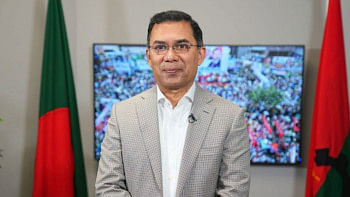Govt's solar power plant yet to see light

More than four and a half years have passed but the government is yet to kick-start the Tk 192 crore installation of a 5-megawatt solar power plant at Kaptai in Rangamati.
The one-year project, which was approved in 2012 and scheduled to be complete by December 2013, has already been extended twice -- first up to December 2014 and then to December 2016.
The authority has sought another two years' time extension to finish the project.
“We are in the process of awarding the contract, but it will take at least three more months,” Faruk Ahmed, project director and an executive engineer of Bangladesh Power Development Board or BPDB, told The Daily Star yesterday.
He also explained why the implementation of the project is getting delayed.
In July last year, when the contract was ready to be awarded, the winning lowest bidder declined to sign the documents, Ahmed said. Finding no other alternative, the authority now has to start all over again and float a new tender.
The present government has set up the goal of providing electricity to all by 2020 at an affordable price.
And to do so, the government has emphasised the development of renewable energy as part of eco-friendly and fuel diversification programme.
The Renewable Energy Policy adopted in 2009 has envisioned that 5 percent of total energy production will have to come from renewable sources by 2015 and 10 percent by 2020.
The share of renewable energy is about 1 percent of total electricity available in Bangladesh, according to the Power Development Board.
But the government's target is likely to remain unachievable as different projects like the five-megawatt one at Kaptai has failed to progress as per the project plan.
The Implementation, Monitoring and Evaluation Department of the planning ministry conducted an inspection into the Kaptai plant on October 7-9.
The project was scheduled to finish by December 2013, but the implementation of the project has been pushed back twice: first by one year and again three years up to December this year. But the project had no physical and technical progress.
The good thing is that the cost of the project will not increase with the pace of the time thanks to the lowering of international market prices of solar equipment.
The cost of the project was estimated at Tk 192.6 crore, of which Tk 27.53 crore will be funded by the government, Tk 157.32 crore by the Asian Development Bank and Tk 7.75 crore by the Power Development Board.
Though more time is needed to implement the project, the cost will not increase like other development projects, said a senior BPDB official.
“We estimate the cost of the project will go down by at least 30 percent in the revision,” he said wishing not to be named.
When the project was taken in 2012, the cost of solar panels and other equipment were costlier by 30 to 40 percent than the current rate, according to the official.


 For all latest news, follow The Daily Star's Google News channel.
For all latest news, follow The Daily Star's Google News channel. 



Comments